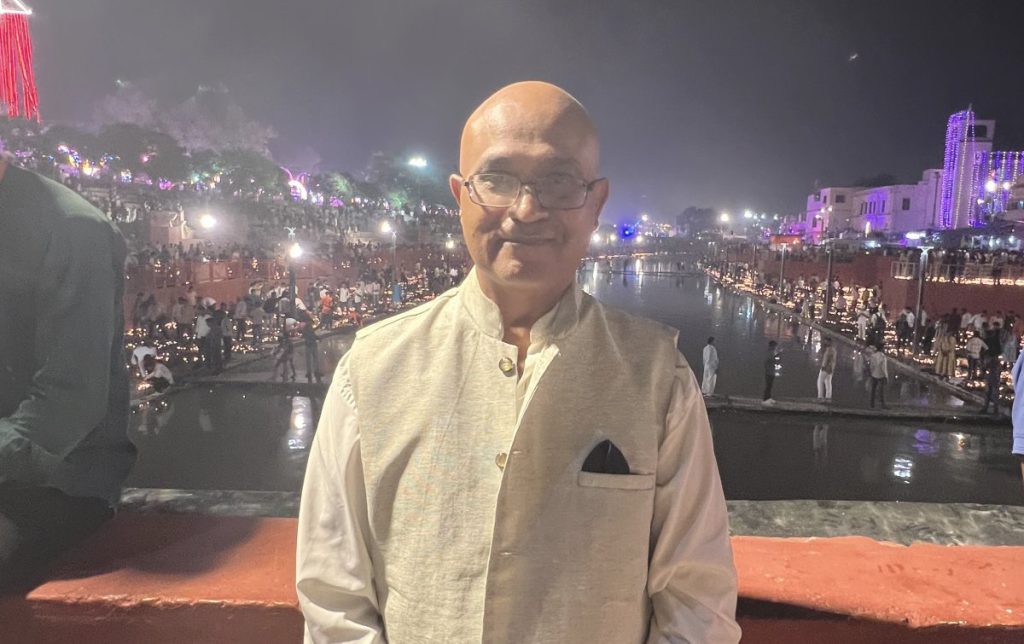Diwali fever 2024 has gripped the large Indo Caribbean diaspora in New York, home to a few million Caribbean nationals of all ethnicities and religions. The festival is celebrated with religious gusto and fervour by Hindus this Thursday and Friday. The celebration brings back memories of Diwali in Guyana, Trinidad, Suriname, and elsewhere by the diaspora community.
Although they may not lit deyas or engage in the spiritual nature of the festival, non-Hindus usually eagerly looked forward for and observe the earthen deyas and spectacular electronic lights that brighten up neighborhoods around the country. They also used to anxiously look forward for edible goodies like various delicious home made sweets or mitai, vegetarian dishes, roti, kheer, among other foods. They would get invitations for dinner or have dishes and delicacies delivered to their homes. Even in the worst economic times and political and food repression in Guyana during the 1970s, 80s, thru 1992 right after the restoration of democracy, Hindus observed the occasion with good naturedness. They shared their foods with others. The feeling is not dissimilar in America or elsewhere in the diaspora.
In Guyana and other Hindu societies, families would lit traditional diyas in front of their homes, businesses and around their yards. Each step outdoor would have one or two deyas. These were supplemented by brilliant multicoloured electronic lights around the exterior of homes and businesses. Rangoli designs were made in front of homes and other Diwali paraphernalia hang in front of houses.
Not everyone could afford the exuberant display of deyas. The less affluent did their best to welcome the Goddess in their homes in less ostentatious style. They had a simple celebration. The more affluent had homes decorated Homes in an engagement of an unofficial competition for the best lit home. There were also lit sparklers and fireworks to entertain the public. The kids had a most enjoyable times. Onlookers went around taking in the spectacle and judging which was the most lit. Kids went around collecting deyas for use the following year to lit up the front of their homes.
In NY, fireworks and sparkling lights and electronic lighting systems were seen all over Little Guyana, Richmond Hill in years preceding this Diwali. They boost the traditional deyas. During the late 1970s and 1980s when the Hindu Guyanese population was negligible, the celebrations were small and hardly noticeable in America. But as the Hindu population grew in size from migration and births, public celebrations were held during the late 1980s onwards. Politicians and mandirs have competed to host Diwali celebrations over the last three decades. There were public concerts in cities with large Hindu populations like NY, Jersey City, Schenectady, Orlando, Ft Lauderdale, among others.
As in Guyana, it has become a tradition for families to invite guests, including non-Guyanese and non Hindus for a full vegetarian dinner. Dinner included the full works as in Guyana, such as pumpkin, bhajjie, alou, dhal, katahar, seime, Channa, dhal puri, kheer, mitai, philourie, bhara, sahena, rasmilai, among other goodies.
Unlike in Guyana, Trinidad and Suriname, mandirs in NY held special services on the occasion of Diwali. Deyas were plentiful, lit up around the Mandirs. Mandirs were often jam packed with celebrants. There was bhajan and kirtan singing and classical dancing and speeches by executives and special guests on the meaning of Diwali. Delicacies and a full dinner were served. There would be food galore.
The diaspora reminisce about their Diwali experience of yesteryear in their former homeland as they continue the tradition in America and elsewhere. They have missed their homeland celebrations with friends and families, but they have transplanted their religious and cultural festivals in America and other parts of the diaspora like Canada, UK, St Lucia, French Guiana. In USA and other parts of Diaspora, they continue to immerse themselves in the Diwali traditions and festivity and the foods that are part of the celebration.
